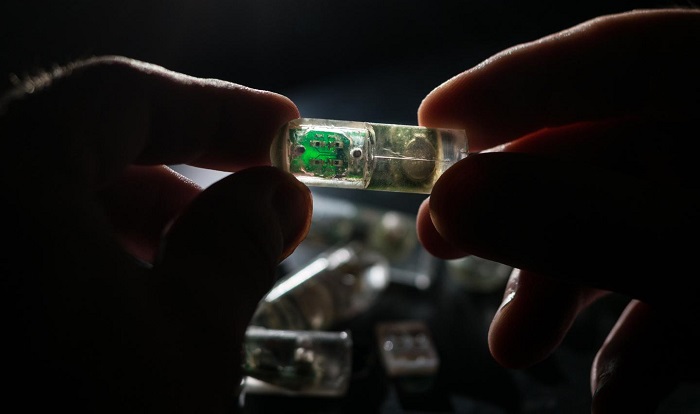Podcast: Play in new window

BOB HIRSHON (Host):
A medical lab in a pill. I’m Bob Hirshon and this is Science Update.
Researchers are developing medical sensors that you could swallow, and that test your gut for bleeding, inflammation and possibly other disease indicators, and then transmit that information wirelessly to nearby computers or smartphones. In the journal Science, MIT engineer Philip Nadeau and his colleagues describe engineering a type of bacteria that glows when it encounters a target molecule, and a computer chip that detects the glow.
PHILIP NADEAU (MIT):
We succeeded in demonstrating that this very weak bioluminescence from cells could be detected within a small capsule-sized device which was fully wireless.
HIRSHON:
Nadeau says different bacteria can be engineered to glow upon encountering many different biomarkers, and they’re microscopically small. So a single capsule could be designed to test for dozens of molecules and conditions. I’m Bob Hirshon, for AAAS, the Science Society.
Story by Bob Hirshon
